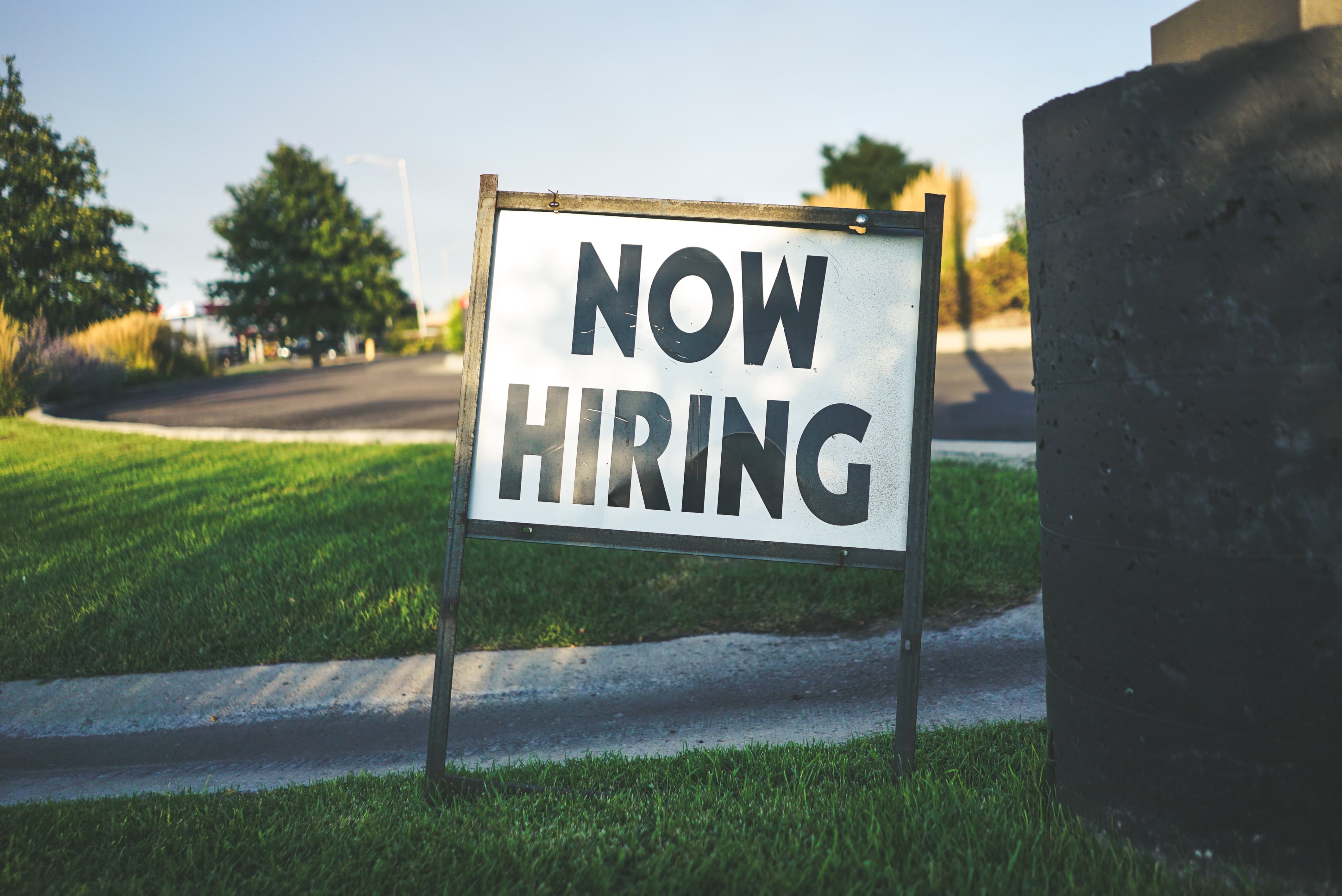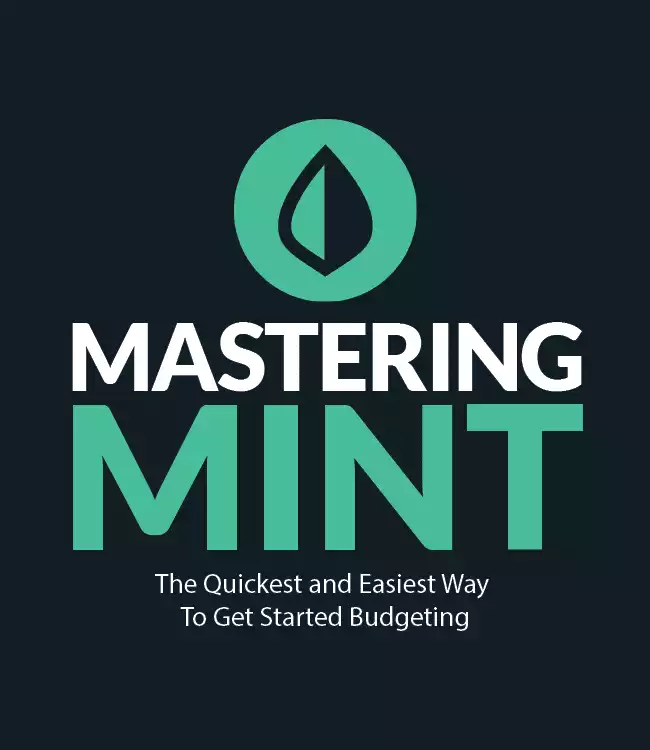- Get in the Right Mindset
- Severance
- Unused Vacation and Sick Time
- Health Insurance
- Switch to a Spouse’s Plan
- COBRA
- Marketplace Insurance
- Reorganizing Your Life
- Create a Routine
- Get Out
- Stay On Task
- Fun Is Not a Four-Letter Word
- Replacing Income
- Unemployment Insurance
- Side Hustles
- Savings
- Sell Stuff
- Reducing Expenses
- Optional Spending
- Saving and Reducing Debt
- Online Job Search
- Other Resources
I had been with them for fourteen years. Then one day, I was let go like it was nothing. I had a 2-year-old and a newborn at home, and I was scared. After leaving the office, I drove to a nearby park, found an empty picnic table, and sat there in stunned silence. How was I going to tell my wife? How is this job loss going to affect our family?
Our income dropped to 40% of what it was, and the savings were only about three months of our new living expenses (young children have a lot of needs). Still, I figured we’d be okay until I found another job. Ten months later, with no prospects, panic was starting to set in.
Losing a job is stressful. Not only do you lose a source of income, but you feel like you’ve lost a sense of purpose. So it’s vital to have a roadmap in this most uncertain of situations.
Things Successful People Do Between Jobs
One of the biggest hurdles after losing a job is getting into the right mindset. It’s traumatic, but without a healthy mental state, it will be much worse. It’s okay to spend a day or so, allowing yourself to grieve.
But don’t let yourself be crippled by fear or self-doubt.
Rediscover a sense of purpose. You need a reason to get out of bed. You also have to manage your expectations. Desperation and bitterness show up in interviews whether you realize it or not, which only exacerbates the problem.
Lastly, don’t keep it a secret. No one is proud of being jobless, but hiding it is not going to help you. It’s nothing to be ashamed of.
Most of the smartest and most talented people in their fields have experienced rejection and unexpected job loss at some point in their lives. Also, it prevents you from networking. By most estimates, a majority of people found their current jobs through networking.
Use Employer Benefits to Cope with a Job Loss
Your contingency plan does not start by dusting off your resume at home. It should start before you leave your workplace. Despite them letting you go, there may be certain obligations they still have to uphold.

Hopefully, you know if you have a severance plan in place with your employer. It’s nice to have the extra cash to tide you over until you find your next job.
However, this will affect quite a few decisions you have to make before you leave.
First, find out if it’s a lump sum or paid out over time. If it’s a lump sum, you usually will be able to start collecting unemployment benefits immediately.
If it’s paid out over time, depending on your state’s rules, you may have to wait until the severance checks stop before you can apply for unemployment.
Also, as a part of the severance process, your employer may assist in looking for another job.
Whether it’s a full-fledged job search assistance program or just giving you time in the office on your dime, it doesn’t hurt to find out if this is an option.
Some employers will also compensate you for any unused vacation or sick time. It may also be in a lump sum or just as continuing payroll deposits after you leave.
If you have a choice, you should weigh the pros and cons of each.
Lump-Sum Considerations:
*It may be taxed as a bonus, which will mean a much smaller check until you file your taxes.
*It may be tempting to spend it sooner rather than later.
Regular Pay Considerations:
*You may not be able to collect unemployment until the checks stop.
*You may be able to stay on your employer’s health plan while receiving checks.
*It may help pace your spending.
If you have a severance package, check to see if this includes a provision for continuing health insurance benefits. Otherwise, you have a choice to make in short order.
If you’re not already a part of your spouse’s employer-sponsored health insurance plan, switching to it is probably the most affordable option.
You do not have to wait for open enrollment as job loss is considered a “qualifying event.” Also, once you find your new job, if they offer a better plan, you can take that time to switch again.
Did you know that if your employer employs at least 20 people, they are probably required to offer you to stay on their health plan if you pay the entire premium yourself?
It’s called COBRA. However, once you see the monthly premium, you’ll have a new appreciation for health insurance benefits.
This is also known as the “Affordable Care Act” plan or Obamacare. If you opt not to use COBRA, this is another option. Federal and state governments run a service that finds affordable health insurance plans, which may be subsidized by various programs.
Unlike getting on COBRA, you are not obligated to remain with your current level of care.
So, if you’re looking to downgrade your coverage and don’t want to wait for the next open enrollment to change your COBRA coverage, you may want to consider something from the marketplace.
Regardless of which you choose, it’s not usually a good idea to go without health insurance during this time of unemployment.
Yes, you need to watch every nickel, but you’re only making a bad situation ten-fold worse if you have a medical emergency and do not have insurance.
This is our guide to budgeting simply and effectively. We walk you through exactly how to use Mint, what your budget should be, and how to monitor your spending automatically.
What to Do In Between Jobs
Who knew unemployment would be so much work? The truth is, being temporarily out of work is not like a mini-retirement. You have several new jobs.
Your life, for the time being, is going to change drastically, so you have to start by reorganizing it.
Your next priority is to manage your finances. You’re going to have to find new inputs while reducing your outlays. And finally, your last job is finding that new one.
If you tackle all these tasks like a job, you will have greater success.
On day one, you have to set your priorities. Without this crucial step, the rest will be much more difficult. This doesn’t mean that life has to resemble that of a galley slave stuck in the dark belly of a ship rowing to some unknown horizon.
But binge-watching all six seasons of that show everyone is talking about is not what this time is for.
You will be very tempted to let the seemingly endless amount of free-time mean that you can do things when you “get to it.” But this is the wrong way to go about it. You need a routine now more than ever.
First, get out of the house. This will give you a sense of purpose along with minimizing distractions. It also keeps you in a “work” mentality.
Find an “office” to go to each day, preferably one where you can find a quiet space to take phone calls.
When I was out of work, my place was the library. It was perfect. During the day it was quiet and distraction-free. Vending and privacy were a relatively short walk away.
And the free WiFi was fast enough to let me upload my resume quickly.
You’ll also want to avoid procrastination. Give yourself weekly or daily deadlines. My life revolved around multiple, categorized to-do lists.
I had a list for job search tasks, a list for personal finance tasks, as well as a list for chores and honey-do items. When I got tired or bored of one set of obligations, I went to another.
At the end of the day, when you see all those items crossed off your list, it makes you feel that you accomplished something. This is critical when you might not feel accomplished by being unemployed.
Lastly, make sure you schedule some fun, especially social fun. Unemployment can easily make you feel isolated, especially if you worked in a team environment for so long.
You shouldn’t feel guilty about some well-deserved recreation (as long as it’s not draining your wallet). I’ll be honest. In a lot of ways, I worked harder as an unemployed person than many days on my actual job.
Being temporarily out of work is not like a mini-retirement. You actually have several new jobs.
Tweet ThisBudgeting During a Job Loss
So what’s the key to surviving financially during this fraught time? It’s all about cash flow. Maximize your intake while squelching your outflow.
In this period, time is money. The longer you are not working, the more opportunity cost is eating away at your net worth. It’s the mindset and preparation that’s going to take you the furthest.
For those familiar with the 50/30/20 rule of budgeting, you know that 50% of your income goes to needs, 30% to your wants, and 20% to saving and debt reduction.
This is also useful as a guide for replacing income between jobs. For the most part, your wants should be on a temporary hold.
This event is what you were saving for. So that leaves you to find some way of finding 50% of your old income to take care of necessities for now.
For those who earned a modest salary, that 50% can come from unemployment benefits. The exact amounts and duration vary between states. However, if you made less than $40k, your benefit should be around 50% of your prior income.
If you made more than that, you’re at the ceiling for benefits, and you will only get the maximum payout equivalent to the prior example.
How long you can be on unemployment also varies by state but is roughly 26 weeks or half-year.
There may be some who are ashamed to collect unemployment. But there is no shame in using this valuable benefit.
In fact, it’s your right. It is not a “handout.” It is actually called unemployment insurance, for which your employer has been paying a premium every paycheck.
Not collecting would be like insuring your car and not making a claim if you total it.
Unemployment compensation by itself is not going to cut it. It’s not meant to replace your job. You’re going to need to find other sources of funds because there is also a time when that well will run dry. Use it as motivation or a countdown to your job search.
If you are like 40-50% of workers out there, you may already have a part-time job in addition to your full-time job.
This is the time to ramp up that side hustle and make it at least into your semi-full-time hustle. Find work as a driver, food deliverer, or writing for an awesome website (unless you’re a better writer than I am).
However, make sure it’s not taking up all your time, either. You need to leave a big chunk of time for your job search.
One caveat is that working part-time may reduce (but likely not eliminate) your unemployment benefit amount.

It’s time for your savings to do what it was meant to do. If you’ve been a diligent saver, it may even feel a bit wrong to be spending down your emergency fund.
Resolve to replace it once you find your next job. Only dip into retirement accounts as a last resort.
If you do raid your tax-advantaged retirement funds, know there will likely be penalties. Your Roth IRA contributions are the best place to start as there are no tax nor penalties associated with withdrawing just the contribution portion of those funds.
Unless you’re a bona fide memorabilia collector, chances are that a lot of your stuff is just sitting there losing value. Why not part with some of it to help your situation?
The proceeds will not be taxed and will not affect your ability to collect unemployment.
If you haven’t used it in a while and will likely not buy again, it’s a good candidate for sale. And price to sell. I’ve found that people will buy almost anything as long as the price is low enough.
This means going on a budget. But if you don’t know where your money is going, it’s almost impossible to budget.
Make a list of what your monthly expenses are. If you exclusively use a credit card for most of your purchases, gather or download your last few statements.
That coupled with your bank account statements should give you a good idea of what your outlays are.
Then start grouping your purchases into categories. This can be ad-hoc and doesn’t necessarily have to be comprehensive.
The first major group of categories should be your essential recurring expenses. This includes things like housing, food, transportation, and utilities.
These are things that without which it will make it difficult to carry out your day-to-day tasks. If you can’t cover at least these expenses with your new income, you’re going to have to make some more drastic changes.
The next major group is discretionary spending. Things like memberships, travel, entertainment, and dining. These you can do without at least a little while. Trimming these is where your creativity comes in.
Look for budget replacements for some of your more costly items. If cooking your meals seems like a bridge too far, think about doing carry-out instead of dining at a restaurant. If you’re a big tipper, you can save 20-25% right there.
Maybe this is the time to re-evaluate that gym membership. Football great Herschel Walker’s entire workout routine for years consisted of just 2000 push-ups and sit-ups – and he had 1.4% body fat.
Also, remember this doesn’t have to be permanent. Once you get that new job, you can revisit these. But you might find you didn’t need some of those things you thought were vital.
This may sound like sacrilege, but now is not the time to be overly concerned about building your nest egg or getting rid of your debt. There will be a time for that later.
While we’re at it, you have nothing to lose by asking for forbearance on your current loan payments.
Some student loans, as well as other debts, sometimes have a provision for job loss. If you’ve been faithfully paying down your balances, you have a good argument for leniency.
Finding a Job is Your New Job
Spend about a week just working on your resume, both paper and digital. These days the only people who want your paper resume will be at job fairs. However, you should always keep a few within reach because you never know when the opportunity will present itself.
For your digital resume, the buzz-words are much more important than the format. Think as if a search engine is looking for certain words in your resume and tailor it to match them.
You’ll also want to clean up your social media. Google yourself to see if there is any unsavory information about you or even someone who has a very similar-sounding name, Ed Bundy.
Imagine your interviewer seeing your latest tweet right before your job interview. Even if they find your quirky off-color, mildly-racist humor funny, their protective instinct for their own jobs will not let it pass.

There are several ways to job hunt online. Each has its pluses and minuses.
First, there are the big job search aggregators like LinkedIn and CareerBuilder. These are places you can post your resume and run searches on specific jobs.
Because this is where everyone goes, you’ll find a lot of options but also a lot of dead-ends. This is where you’ll do your baseline searching, but keep your expectations realistic.
Next, you should invest the time to look at individual websites of companies. Many times companies will post their newest jobs directly to their website first because it’s relatively easy and it draws motivated job-seekers.
This might take a little more work on your end but will likely produce better results.
If you’re in a pretty high-demand or better-than-average paying career field, you should also look for reputable recruiters that specialize in your line of work.
Potential employers pay them a finder’s fee so they are motivated to find you a job that matches your skills as quickly as possible. This is like the “auto-pilot” facet of your search.
Your local unemployment office is a great place to get some free services. If you are collecting unemployment, they’re motivated to help you find work. They sometimes hold workshops for resume writing, interviewing, and even hold job fairs.
Be on the lookout for these. Before you go, take a moment to find out information on the companies that will be there. You can tailor a copy of your resume to appeal specifically to them.
And nothing leaves a better impression to a recruiter than someone who already knows a little something about their company.
Your Job Loss Is Temporary
According to monster.com more than a third of all workers they surveyed have experienced layoffs. It can be a crushing blow to your self-esteem, but almost everyone comes out the other side richer, if not in actual salary, at least in wisdom and resolve.
After my layoff, I found a much better job at a much higher salary. My new job offered me opportunities I could only dream of in my old one. In a way, it was the best thing that could have happened to me career-wise. Imagine it can be for you too.


